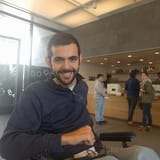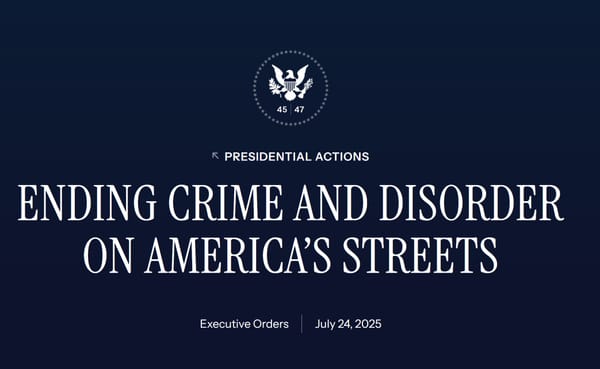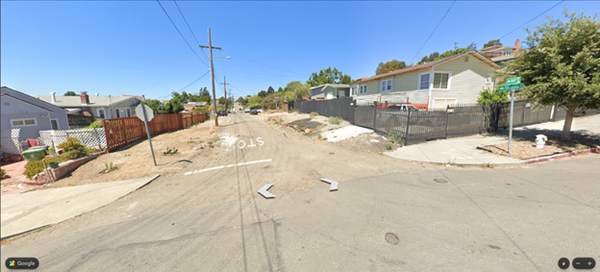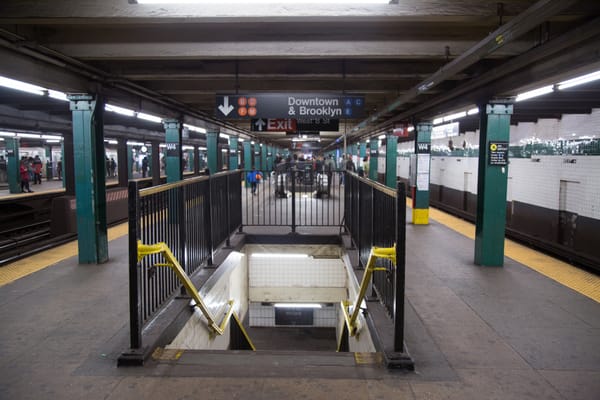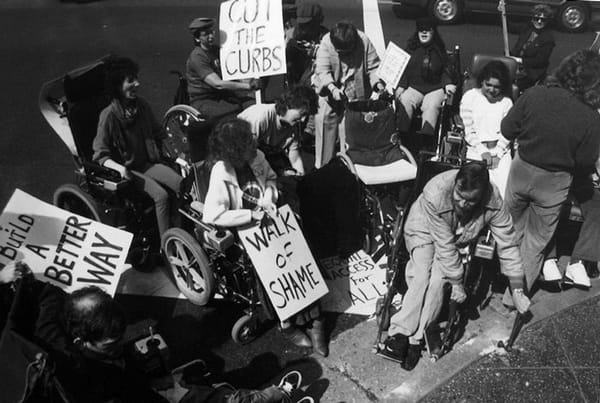6/29/25: An Essay In Defense of "Vulnerable"
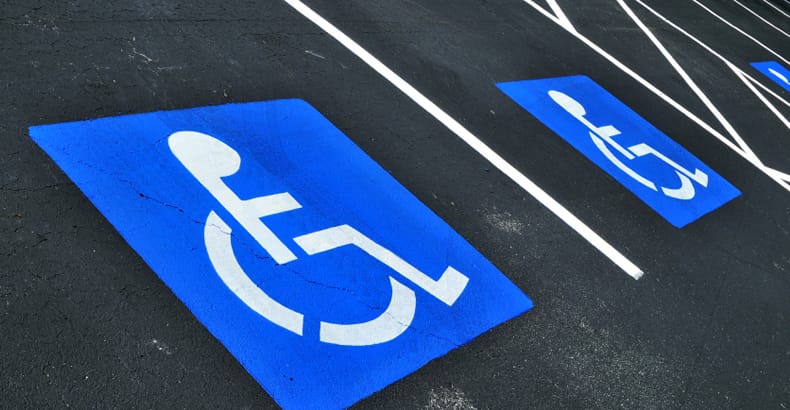
A lot has happened these past 7 days. The Senate’s version of the budget reconciliation bill is moving to a floor vote, threatening the largest Medicaid and second-largest SNAP cuts in history and a death sentence for clean energy in America. Here in California, lawmakers passed a budget that cuts Medi-Cal (California’s Medicaid program) for undocumented immigrants but avoids proposed cuts to In-Home Supportive Services; however, the whole budget will collapse unless lawmakers pass major housing permitting reform by tomorrow. And over in Austin, Texas, the rollout of Tesla Robotaxis – one of many automated vehicle services often touted as a boon to disabled folks’ independence – is going about as well as you’d expect.
Despite all the news, though, this week’s post is a longer piece on something I’ve been meaning to write about for a while: the resistance by some disability advocates to using the term “vulnerable” in climate work (and related topics), and its implications for how we conceptualize climate and disability and how effective we are as advocates. A recent event inspired me to cover it today, since it’s fresh in my mind. This post is also 3000 words and a bit philosophical, so buckle your seatbelts…
Early last week, I was on a panel discussion covering disability and climate change, and mentioned that smart policies can reduce disproportionate climate vulnerability faced by people with disabilities (PWDs). Each of the panelists had 5 minutes to talk, and the next speaker – Marcie Roth, Executive Director of the World Institute on Disability (WID), my former employer – included in her action items that we must stop referring to people with disabilities as “vulnerable” when it comes to climate change. Now, Marcie is a major leader in the disability and disaster space, with prior posts at FEMA and the Partnership for Inclusive Disaster Strategies, and her words carry a lot of weight. I’ve heard her oppose the use of “vulnerable” before, and though she’s not the only advocate that shirks the term and its derivatives, from what I’ve seen she’s led the campaign.
I don’t think the opposition to “vulnerable” is benign or in advocates’ best interest, though – and oppose that opposition for a couple big reasons. First, it strikes me as inflexible and reminiscent of exclusionist strains of anti-medical-model advocacy. Even more, I think rigid shirking of the term vulnerable threatens the effectiveness of advocates and advocacy when it comes to disability-inclusive climate resilience.
The opposition to “vulnerable” didn’t come out nowhere and in some ways it makes sense. Vulnerable is used in policy and planning to refer to populations that have increased exposure to climate impacts or where climate impacts would cause them disproportionate harm due to socioeconomic, physiological or psychological factors. It’s present everywhere, from disaster readiness plans to climate justice reports. But it also (understandably) rubs some disability advocates the wrong way – especially the folks who have been (understandably) incensed by so much societal paternalism toward PWDs. But don’t just take it from me. As the Partnership for Inclusive Disaster Strategies posted on LinkedIn a few months ago, “We avoid using ‘vulnerable’ when describing Disabled people because it implies inherent weakness or pity, whereas ‘at risk’ points to the external factors—such as inaccessible environments, discriminatory policies, and systemic barriers—that put us at disproportionate risk.”
I should be clear that both Marcie and the Partnership for Inclusive Disaster Strategies do a lot of great work for disability-forward disaster planning; my consulting outfit, Accessible Climate Strategies, is actually a member of the Partnership and I support their work. But I think resistance to the term “vulnerable” is a mistake at a philosophical level and echoes the exclusionary critique of the medical model of disability (another stance I oppose for personal and philosophical reasons). I also think opposition to widely used planning terms like “climate vulnerability” and “vulnerable populations” risks making it so our collective work on climate resilience doesn’t align with other critical work in the climate planning space, including the work of government agencies and climate justice allies. It’s not just rhetorical. It risks jeopardizing disability climate justice.
Parallels with Exclusionist Strains
For my view, opposition to the word “vulnerable” is the climate-adaptation version of strict opposition to the medical model of disability. At least per the Partnership’s statement, referring to PWDs as “at risk” echoes the social model by showing that the disproportionate risk and impact faced by PWDs is external, not something intrinsic to our bodies and minds.
Andrew Hogan, writing in the Canadian Medical Association Journal, provides a concise history of opposition to the medical model, with surprising parallels to the vulnerability debate.
Over the last 6 decades, many published commentaries, from both within and outside the medical community, have criticized medicine’s characterization and management of mental illness and disability. These critiques have often referenced the “medical model,” a term that has multiple meanings but has almost always been used pejoratively. Prominent critics have included disability scholars and self-advocates, who attacked the so-called “medical model” and espoused an alternative “social model,” which characterizes disability as the product of an unaccommodating and oppressive society, rather than an individual and medical problem.
…
The critique of the medical model originated in the psychiatry literature and has taken various forms since psychiatrist Thomas Szasz coined it in the mid-1950s. One version, an antireductionist view, lamented the tendency of medicine to reduce disease and disability down to physiochemical factors. This genre of criticism was popular among health professionals, who called for reforming medical practice to make clinicians more sensitive to the complex psychosocial aspects of health and illness.
A second, exclusionist strain — initially espoused by Szasz — did not seek to reform medicine, but to exclude certain areas from medical oversight. Proponents of exclusionist views argued that medical intervention in specific realms — like mental health and disability — was stigmatizing or oppressive. Some suggested that these issues required societal reform, not individual treatment.
…
Sociologists Erving Goffman and Kenneth Irving Zola also adopted an exclusionist strain of medical model critique, highlighting the isolation, stigmatization and medicalization of deviant behaviour.6,7 Zola also helped to adapt Szasz’s exclusionist view of mental illness to encourage new perspectives on physical disabilities as a social rather than a medical issue. In doing so, Zola — who identified as having a physical disability — contributed in the 1980s to the burgeoning American disability self-advocacy movement.7
At the same time, British scholar Michael Oliver adopted an exclusionist strain of the medical model critique in his formulation of the social model of disability. 8 The social model argued that disability was a status imposed on people with various forms of impairment, and therefore that disability was a political, not a health, issue. Social model proponents held that the medical model viewed personal impairment as the sole cause of disability, making an individual’s body the appropriate target for intervention. Oliver argued that disability was distinct from impairment, and instead was the product of an unaccommodating society. From a social model perspective, medicine’s focus on treating impairment reified the widespread conception of disability as an individual tragedy, rather than the outcome of oppressive social perceptions and arrangements. One way to combat oppression, social model advocates suggested, was to exclude disability from medical oversight.
Of course, everyone occasionally requires medical care, and for people with certain disabilities — especially progressive, chronic or painful conditions — medical interventions may be necessary to maintain well-being and livelihood.9 Although the social model was an empowering new perspective for many people with disabilities, some struggled with the implication that their disability was entirely the result of social oppression, because this seemed to suggest that their individual impairments should be ignored. [emphasis mine]
At its worst, exclusionist medical model critiques lead people with disabilities to avoid learning about their body or mind or properly managing their physical and mental health. Some advocates’ opposition to the medical model can lead them to view the medical system with such disdain that they avoid medical treatment, pursue unhelpful types of alternative medicine, self-medicate, or shirk their doctors’ recommendations; they may then deal with worsening health by pretending that their un- or under-treated health issues are just part of the disability experience. You sometimes see this within the disability rights nonprofit-industrial complex, where opposition to the medical model is strong and people fight for much-needed services and accommodations in their day jobs. There, in-person and virtual water cooler discussions lean more toward attendant care than healthcare – and any healthcare talk is about fighting for Medicaid benefits, not the benefits of last week’s doctor’s visit(s). People talk at length about the traumas of living in an ablest society, but don’t discuss the medical traumas many PWDs endure (after all, our disabilities are supposed to be sources of pride, not sources of trauma). In that kind of environment, it’s easy to ignore your own health, get burnout, and even have physical and mental traumas from the whole experience. In short, reductionist framing can have concrete harms.
This is Personal, not Just Theoretical
The scenario above happened to yours truly back in 2020, with an under-treated health issue leading to burnout and my resignation from WID – where Marcie was my boss’s boss – one week before lockdown. I simply hadn’t given my body and my mind enough respect and attention in the wake of a seizure in May 2019, and looking back on it, the way I conceptualized disability and the health system contributed to me ignoring my own urgent health needs. Despite the disability justice community’s constant fight for access to healthcare, I don’t recall any affirmative message that your health is precious, and you should take care of it to the greatest extent possible.* Instead, that public message largely comes from oft-maligned medical professionals and certain disability-specific nonprofits like United Spinal. I wish that affirmative messages about health were more prevalent in the disability justice community and, for obvious reasons, I wish I took them to heart in my younger years.
These days, I’m doing everything I can to manage and maximize my health, work with my team at Kaiser, and be the best healthcare self-advocate possible. I’ve also recognized how important mental health is, even doing PTSD treatment for complex medical trauma spanning from that seizure in 2019 through uncontrollable back spasms and multiple ER visits last year – a narrative of trauma and treatment I never heard openly discussed in activist circles.* And I’ve begun to understand my SCI as its own chronic health condition that requires me to interact with the medical system for my own well-being and livelihood. Where I am now is a major pivot from where I was in the first Trump administration and a big jump from even a year ago. I can only encourage other folks with disabilities to take care of their physical and mental health, reflect on the whole of their disability, and seek therapy at some point in their lives. In whatever ways it can, the disability community as a whole should do the same.
*I’m sure things are different in the assorted disability support groups hosted by local Independent Living Centers, including acquired and physical disability support groups I should’ve attended. But when it comes to community events and presentations, affirmative messages to safeguard one’s health – especially by interacting regularly with healthcare – are hard to come by.
To be clear, the way the medical system conceptualizes and addresses disability is far from perfect. Ableism and paternalism are ever-present a full 70 years into the war of the disability models. But I strongly believe in an anti-reductionist view of the medical model of disability rather than the exclusionary critiques championed by Goffman, Zola, and Oliver. If there’s a system some of us must interact with for our well-being and livelihoods, we inherently need to reform it. Because when throwing the baby out with the bathwater involves ignoring the medical side of our disabilities, we commit ourselves to unnecessary medical traumas as if we just shot ourselves in the foot.
Anti-"Vulnerability"’s Parallels with Exclusionist Strains
Which all brings me back to vulnerability. From where I sit, the hard-line stance against the term “vulnerable” and the attempt to replace it with “at risk” echoes Michael Oliver’s exclusionist medical model critique. It suggests that disproportionate risk is due to a lack of proper planning and accommodation, and therefore disproportionate risk of harm must be addressed through tackling those non-physiological problems. But doing so fundamentally misrepresents or outright ignores the physiological risks faced by many disabled people and pretends that external action alone can solve problems it simply can’t. As I wrote in my reply to the Partnership’s post on vulnerability:
I get the sentiment, but I'm physiologically more likely to experience heatstroke if I'm outside during an extreme heat event. More accessible environments, inclusive policies, or torn-down barriers won't change that. If there's a flood and I can't swim to safety, a tremendously inclusive world would still leave me especially exposed to abandonment or drowning.
We simply must grapple with the fact that the physiological side of our disabilities inherently make us more vulnerable to climate impacts. The socioeconomic side of disability – from higher poverty to lower employment to lower auto ownership to the high-risk areas where we are likely to live – amplifies that vulnerability. It may be a tough pill to swallow, but accepting and interrogating our vulnerabilities is both good for understanding the whole of our own disabilities and necessary for effective, disability-inclusive climate resilience. If climate change is a collectively traumatizing experience for people with disabilities, we must take a trauma-informed path to action. That means understanding both the floor and the ceiling of our vulnerabilities; examining how much is intrinsic to our bodies and minds versus how much is amplified by society and its infrastructure (or lack thereof); understanding what we can and cannot change, both collectively and individually, and what a reasonable path forward looks like; and creating a plan to change what we can, in what time we can, while accepting what we cannot change in what time we have. (We can certainly leave a roadmap to our descendents for creating further equity, though). On the other hand, I think it’s a disservice to tell disabled people that we have no inherent vulnerability and that the excess risks we face are both fully imposed by and fully rectifiable by society. It also risks alienating people with chronic health conditions (like me), just like exclusionary rejections of the medical model do. And finally, I think it’s a mistake to spread that message to the able-bodied population and decision-makers alike, as it presents disability in an incomplete light, directs society’s energy into the wrong mix of actions, and gives a green light for false hope.
There’s another danger of shirking the term “vulnerable”: it prevents disability advocates from interacting with other stakeholders in the ways we need. That's because “vulnerable” is a widely understood and adopted term used in climate equity and public health research, advocacy and policy. People with disabilities are just one of many “vulnerable groups” or “vulnerable populations” listed in government reports, alongside women, children, seniors, racial and ethnic minorities, non-native speakers, low-income individuals and families, the unhoused, and the LGBT+ community (and others I’ve likely forgotten). Something like that is hard to change without a clear reason and alternative.
As I said in my response to the Partnership, “If the disability community and activists shirk "vulnerable" entirely, then we will be trying to rewrite all sorts of documents, policies, etc. Perhaps we'll be trying to carve out a different rhetorical slice just for the disability community, while other constituencies are still referred to as vulnerable populations.” This would cause understandable friction with those other stakeholders – including otherwise-friendly policymakers and other vulnerable groups – in ways that might alienate disability advocates from the allies we need, or at least knock us down a tier on their “respect” list. It threatens to draw lines between disability stakeholders, such as between those of us with and without acute thermoregulation issues when confronting extreme heat. All of this, again, would be over a rhetorical move I think is wrong on the merits.
Finally, I think it’s important that leaders who eschew a widely-used term provide clear guidance on alternatives, both for fellow advocates and for their audiences. Simply suggesting something like “at risk” as an alternative to “vulnerable” falls short of the kind of style guide needed here. If my fellow advocates truly think this term is a line in the sand, I invite them to more fully flesh out replacements to “vulnerable” and all its derivatives – and suggest how we tackle the communication barrier that would create between disability advocates and the rest of the climate world.
In other news:
Why mentally incompetent immigration detainees suddenly lost attorneys | USA Today
House Bill would provide property tax relief for seniors and people with disabilities • NC Newsline
UW report links housing stress to worsening health in Wisconsin – The Badger Herald
Orange County leaders take steps to reduce rising incarceration costs and inmate health care - WFTV
If Trump wants more deportations, he’ll need to target the construction industry • Stateline
Gun suicides in US reached record high in 2023 • Stateline
Local governments, tribes, nonprofits sue Trump administration over EPA grants • Stateline
Texas is illegally keeping people with disabilities in nursing homes | KXXV
DWP disability benefit cuts shock as plans rejected by over 70 Labour MPs - The Mirror
Governor McMaster Signs Bill Creating New SC Behavioral Health Department – WRHI
Trump’s Section 8 Housing Cuts: Will Millions Face Homelessness? | Norada Real Estate Investments
City of Houston introduces new mental health housing | CW39 Houston
Federal Regulator Opens Doors to Considering Crypto in Mortgage Applications | Investopedia
Los Angeles Encouraging Housing Development in New Ordinances | The National Law Review
New Tool Lets Raleigh, N.C., Residents Shape Accessibility | Government Technology
